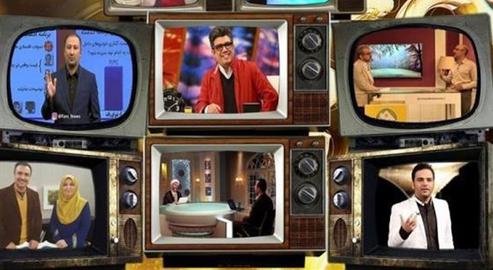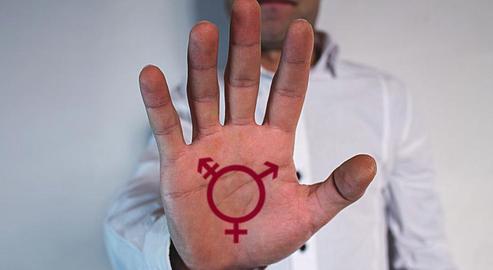Meysam Mousavi Asl, Sahand Talebi, Citizen Journalists
"Our show is very popular. If you want to spend half an hour on this program, you have to give at least one golden coin as a gift." This is the response of a director of a prominent television news talk show on the Islamic Republic of Iran Broadcasting (IRIB), one of Iran’s largest state broadcasters, when responding to a request from a government director official to appear on air.
The producer responsible for booking government officials says, regarding this response, that: "The popularity of the program, and the long waiting list for many officials to appear on the show, has caused those who want attend and are not on the list to offer concessions to the show staff, especially the executive producer, so that they can have the opportunity to appear on the show."
The person, who did not want to be named for security reasons, says, "The price of a gold coin, which has reached about 16 million tomans [$535] these days, is the minimum bribe that these producers and those on other popular IRIB programs ask from would-be participants. Bribes are sometimes even as high as an apartment, a car, or large low interest loans."
According to this producer, who wishes to remain anonymous, government officials appear on News Channel – tasked with publishing news, information and other public interest materials for audiences – to respond to questions from the public. The bribes they pay to the producers “are [also] suggested by the officials to the broadcasters in order to present an acceptable image of them," the source said.
On July 10, 2019, the Young Journalists Club released a video of an interview with Mohsen Maghsoudi, presenter and reporter of the Soraya program, in which he revealed that he had been offered the bribe of an apartment from a ministry in exchange for putting forward the ministry’s message.
The allegation of such a bribe, offered by one of the ministries of President Hassan Rouhani's government to the presenter of the Soraya program, which is broadcast on Ofoq Network, is one of the dozens of cases that have been leaked. But in many cases the bribes are agreed between a producer and a government official without anyone else ever learning about the bribes.
"I have loved working in television since I was a child," says Maryam, a senior news secretary at the IRIB, who complained about the unfavorable working conditions at the dominant state broadcaster. "After years of hard work, now that I have achieved one of the greatest dreams of my life, I hate it, because corruption is rippling everywhere you look. Sometimes I even doubt whether the salary I receive is halal [permissible under Islamic law] or not."
Maryam points out that a platform and a camera in the hands of some managers and employees of the IRIB has become a means to gain concessions and to force officials to pay bribes in exchange for being able to appear in front of the camera of some programs.
“Appearing without paying is limited to programs that are not very popular and do not have a large audience, or when the producer insists on inviting a special director or official," Maryam added.
The IRIB is one of the organizations that receives a sizeable budget under Iran’s Supreme Leader Ayatollah Ali Khamenei. But despite this IRIB is always dissatisfied with the allocated budget and has even declared itself to a loser, with 60 percent of its revenue dependent on advertising, a part of which is dedicated to the IRIB due to government coercion by ruling system-affiliated organizations and institutions. (Iranian law says that government agencies are required to donate one percent of their funding for culture and information to the IRIB.)
For many years, with the advent of Persian-language satellite channels such as Manoto, BBC, and Iran International, the IRIB has faced a sharp decline in audience. The directors of this large apparatus, which employs about 70,000 people, cite the large foreign investments that launch and operate foreign networks such as these to capture public opinion and to oppose the ruling Islamic Republic system as the reason for the decline in the audience. IRIB director say their alleged lack of financial resources is the reason for this failure.
Maryam rejects this and says: "The IRIB is one of the organizations that provides the best welfare facilities to its employees. If it really has a financial problem and is at a loss, it cannot provide these conditions. This organization has a very high budget, both in rial and dollar terms, compared to other organizations."
But other IRIB workers face more difficulties.
"Temporary contract employees constantly hear about the lack of funding," said Sohrab, an IRIB temporary contractor. "Their salaries are reduced and even that amount will be paid with delays." Another temporary contract employee said: "The welfare facilities of the broadcaster are for official permanent employees only. But for years, the organization has not had permanent employment contracts under the pretext of a lack of funding, and most of the employees are temporary contract workers. Every time a new contract is signed, the salaries are reduced." However, he also believes that these issues have nothing to do with the budget of this large organization, and the reason for the delay and reduction of the salaries of temporary contract employees is once again corruption.
Article 22 of the IRIB statute says that the budget for the broadcaster comes from eight sources; selling broadcasting rights to other agencies and bodies, direct advertising revenue, implementing the National Television Network Development Law, grants from the national development fund, revenues and profits from IRIB productions, the government’s general budget allocations, cash or non-cash contributions, and any other income sources allocated to the broadcaster.
The turnover the IRIB in the budget of 2020-2021 will reach 4.128 trillion tomans [$137 million, 150 million euros]. Although the value of this figure will rise with the increase in the price of foreign currency in Iran'sofficial currency system system, assuming that the price of currency in this system is constant, the IRIB receives a budget of 6.8 trillion tomans [$226 million], of which 2.2 trillion tomans [$73 million] is provided from advertising of governmental and non-governmental companies and the IRIB's own revenues and the rest is paid by the government from the general budget of the country.
Although the financial balance sheet of the IRIB is opaque and there is no credible document on its real expenses and revenues, it is nevertheless at the top of the list of loss-making companies whose revenues do not cover its expenses. The IRIB’s funding is therefore inevitably drawn from public funds – despite the volume of its direct and indirect income.
And it is this lack of close supervision over IRIB’s financial statements that has created the situation where its managers and producers operate a bribery racket to sell airtime and influence to government officials.
visit the accountability section
In this section of Iran Wire, you can contact the officials and launch your campaign for various problems

























comments